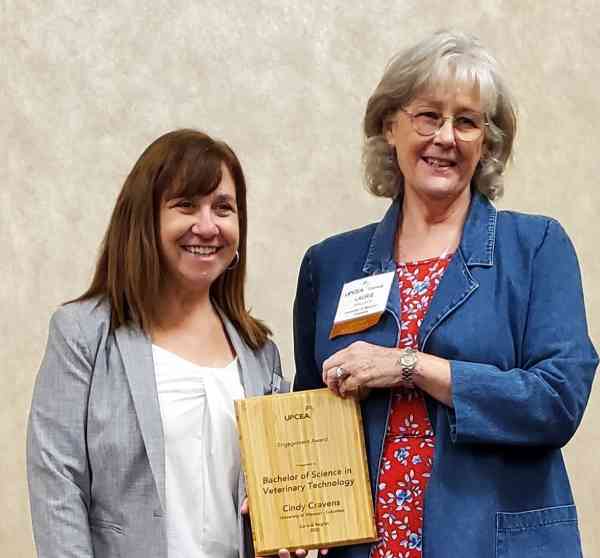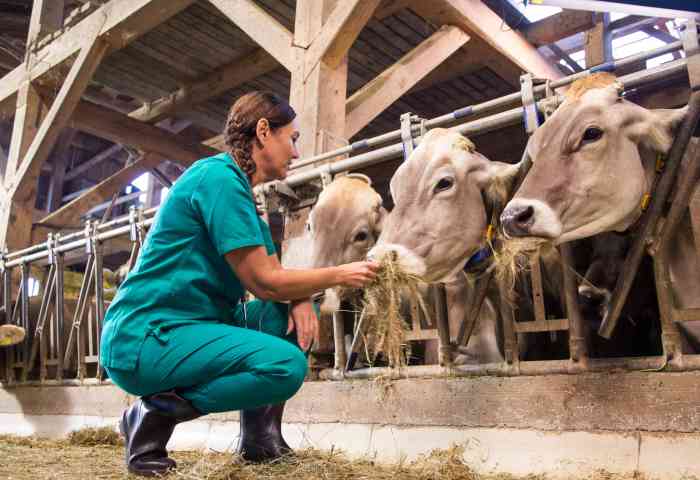Get started with Mizzou
ApplyBachelor of Science
You embarked on a path to care for animals. After earning an associate degree and becoming a registered veterinary technician (RVT), you’re looking ahead — both for your career and the treatment you provide.
This program is intended for both newer and experienced RVTs interested in growing their skills. Mizzou's online Bachelor of Science in Veterinary Technology is one of the only programs of its kind in the nation. Earned through the College of Veterinary Medicine at Mizzou, the online bachelor's in veterinary technology offers flexible courses to expand upon your knowledge of animal anatomy, behavior and disease. After completing your degree, you'll be positioned to move into a leadership role or pivot to a position in education, research, pharmaceuticals and more. If you choose to continue your education, this program also offers a seamless transition to a master’s in veterinary sciences (MS).
The online bachelor’s in veterinary technology is ideal for those who already have an associate degree from an AVMA or CVMA-accredited program. It can also help you develop proficiencies to complement a Veterinary Technician Specialist (VTS) certification.
Not ready to dive into a bachelor's program? We offer an online undergraduate certificate in veterinary sciences and an online undergraduate certificate in biomedical sciences.
Quick facts
Official name
Bachelor of Science in Veterinary TechnologyCampus
Program type
Bachelor's degreeAcademic home
College of Veterinary MedicineDelivery mode
100% onlineAccreditation
Higher Learning CommissionTransfer credit hours
76Transfer estimated cost
$45,417.60*This cost is for illustrative purposes only. Your hours and costs will differ, depending on your transfer hours, your course choices and your academic progress. See more about tuition and financial aid.
About the BS in Vet Tech Program
Mizzou's College of Veterinary Medicine is one of the top-ranked schools of its kind in the country. And Mizzou Online has ranked within the top 25 best online bachelor's programs according to U.S. News & World Report. You'll be taught by leaders within the veterinary industry with a record of success specifically in online learning.
The program was developed in response to a nationwide shortage of veterinary technicians. It's meant to provide a clear, flexible and accessible pathway toward advancement. Total program credit hours are based on courses already completed for an associate degree in veterinary technology.
For earning a bachelor’s degree in veterinary technology, this program:
- Emphasizes practice management, communication and business skills alongside animal health care to position you for leadership roles.
- Is taught by Mizzou’s community of outstanding veterinary scholars and professionals.
- Helps you develop mastery in veterinary sciences, anesthesia, clinical pathology, veterinary specialties and other advanced topics.
- Presents the opportunity to build or grow your network of professional connections.
- Prepares experienced and newer RVTs for a broader scope of practice.
- Lets you transfer associate-level veterinary technology credits, as well as general education courses, toward a bachelor’s degree and benefits from Mizzou’s articulation agreements.
- Allows you to meet increasing treatment demands for service and farm animals and pets.
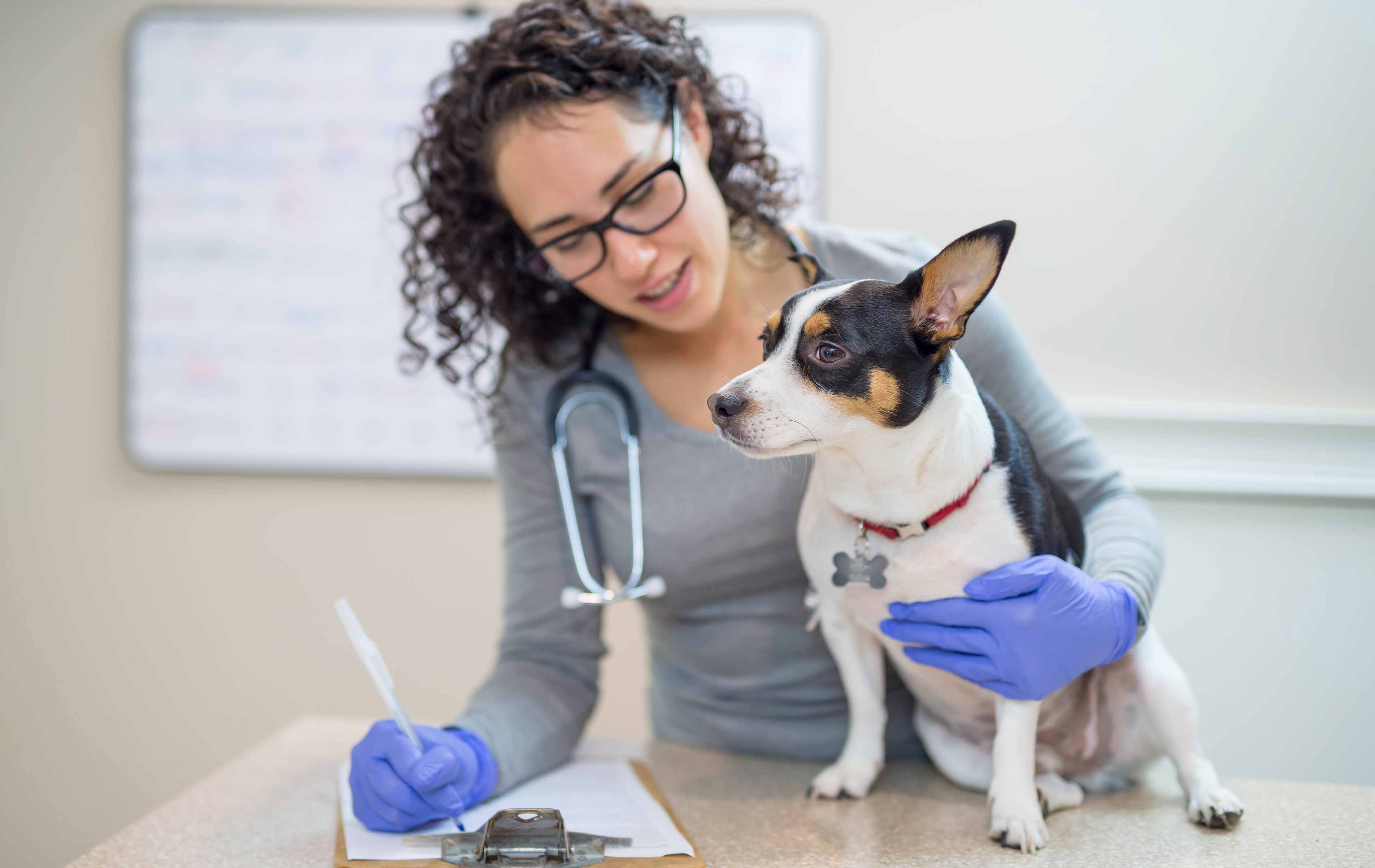
Career prospects
The Bureau of Labor Statistics has identified 20% more positions for veterinary technicians and technologists between 2021 and 2031. The online bachelor’s in veterinary technology equips you to not only seize these opportunities but make an impact through leadership, management or another advanced role in:
- Animal behavior and nutrition
- Clinical pathology
- Equine and farm animal nursing
- Lab animal medicine and research
- Small animal dentistry, neurology and rehabilitation
- Surgical veterinary nursing
- Veterinary toxicology, clinical practice, emergency and critical care
Common job titles for graduates include:
- Registered veterinary technician
- Vet tech supervisor
Program structure
Delivery of this program is 100% online: No campus visits required, and all courses are held in an asynchronous format.
The online bachelor’s in veterinary technology is divided between 24 credit hours of required courses and variable electives introducing more advanced animal health care areas. The sequence exposes students to multiple veterinary specialties, research opportunities and potential career paths and is based upon previously completed subjects.
The typical student transfers 39–43 credit hours of veterinary technology courses, in addition to general education courses, toward their bachelor’s degree at Mizzou. Students are then able to use remaining credit hours required to pursue higher-level subjects in veterinary technology and complete University general education and University graduation requirements.
All courses are semester-based. Students typically finish the program in 2-3 years.
Core courses cover
Required courses for the online bachelor’s in veterinary technology go over:
- Biomedical pathophysiology for veterinary technicians
- Veterinary anesthesia for all domestic species
- Comparative anatomy for species commonly encountered in veterinary practice
- Animal welfare and ethics, with emphasis given to horses and companion and farm animals
- Veterinary pharmacology for both large and small animal organ systems
- Domestic animal behavior, including communication, aggression and development
- Cytology, with a focus on inflammatory and neoplastic diseases
- Leadership, communication, critical thinking and care delivery in the veterinary profession
Review all required courses for the online bachelor’s in veterinary technology.
Delivery
100% onlineCalendar system
Semester-basedTypical program length
3 yearsTypical course load
1 or 2 classes each semesterAccreditation
The University of Missouri is accredited by the Higher Learning Commission, one of six regional institutional accreditors in the United States.
Faculty spotlight
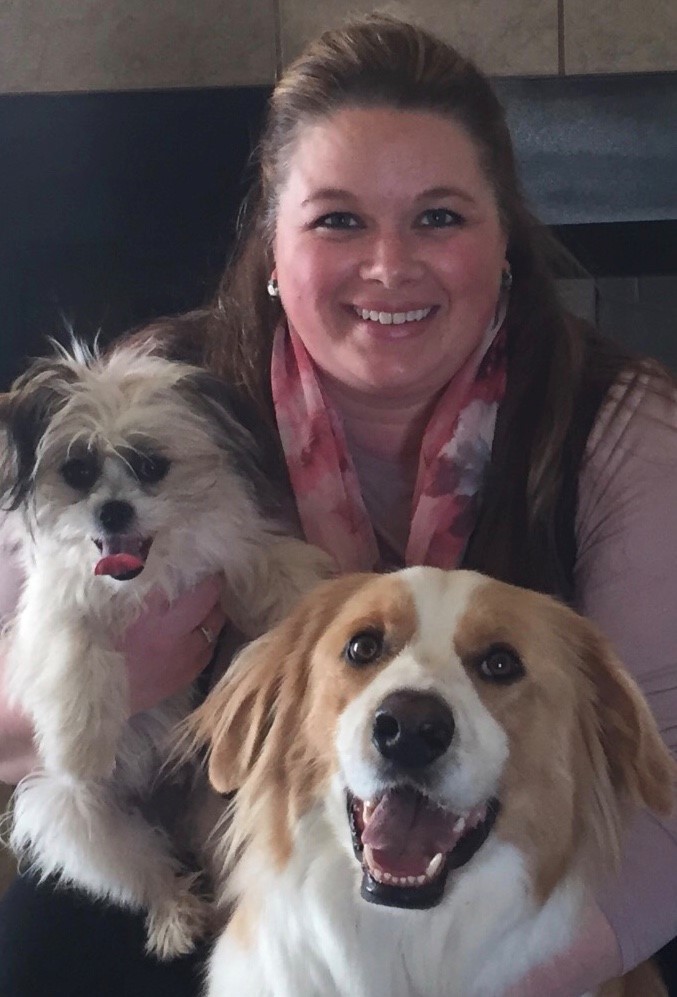
Dr. Cindy Cravens is a graduate of the University of Missouri-Columbia (Mizzou) College of Veterinary Medicine (CVM) and practiced for 11 years in small animal private practice before returning to Mizzou as director of the bachelor of science in veterinary technology program. She works with veterinary students as a general practitioner in the Community Practice service at Mizzou's Veterinary Health Center and teaches veterinary anatomy and physiology and clinical math for veterinary technicians in Moberly Area Community College's veterinary technology program. She also spends time with workgroups that focus on raising the profile of the veterinary technology profession and emphasizing the importance of team-based patient care delivery. As director of the BSVT program, she focuses on curricular development, fair and appropriate transfer of veterinary technology credit to Mizzou and methods for improving non-traditional student success. Dr. Cravens is passionately committed to providing access to quality advanced veterinary technology education and establishing national standards for scope of practice and skills utilization aligned with the level of education in the profession.
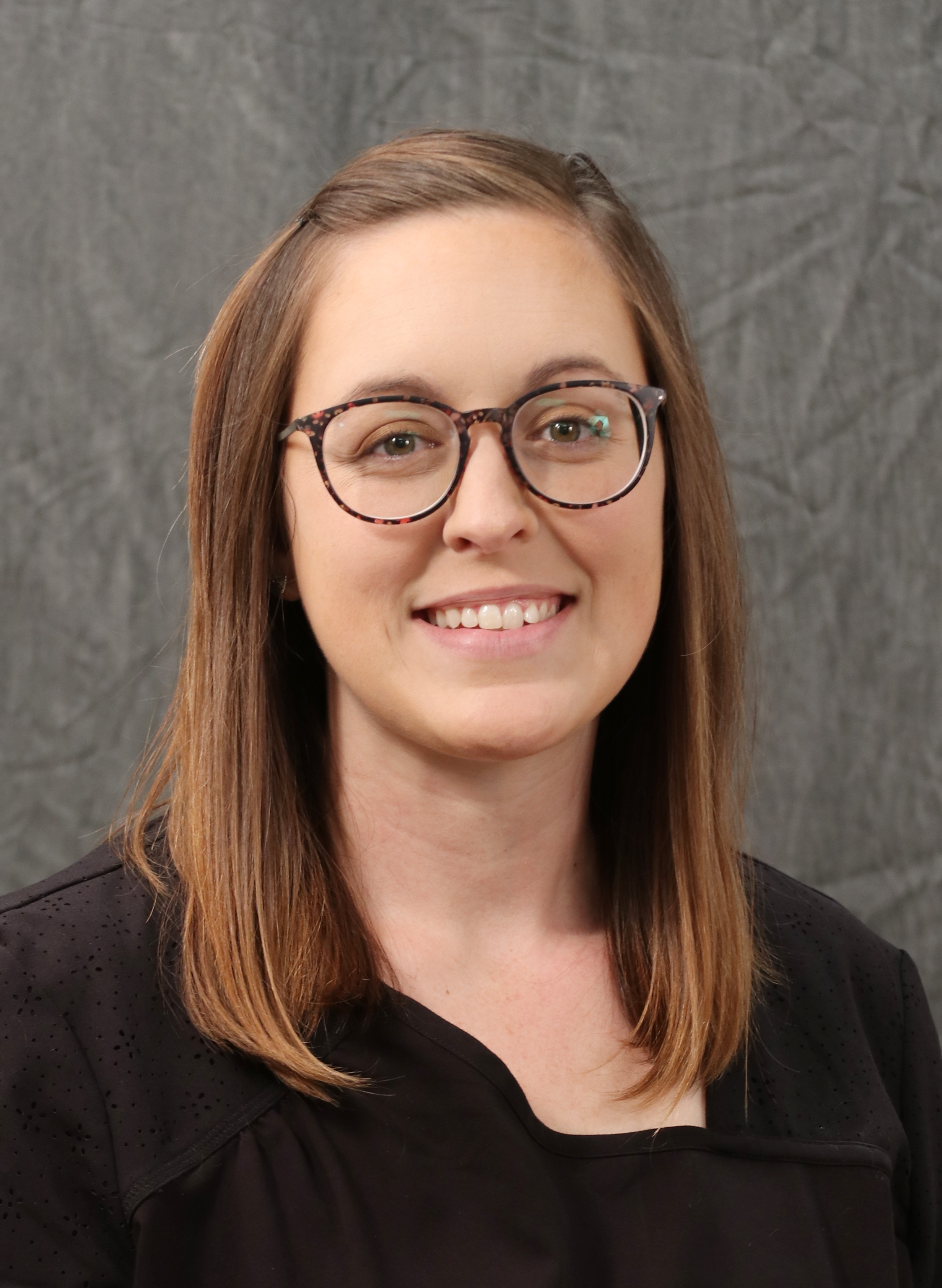
Stephanie Gilliam earned her associate’s of applied science in veterinary technology from Jefferson College in 2005. She began working at the University of Missouri-Columbia (Mizzou) Veterinary Health Center as the neurology/neurosurgery technician in 2007. She earned her certification in canine physical rehabilitation from the University of Tennessee in 2008 and her bachelor’s degree in veterinary technology from St. Petersburg College in 2011. She earned her veterinary technician specialist certificate in neurology from the Academy of Internal Medicine Veterinary Technicians in 2013. She earned her master’s degree in biomedical sciences with an emphasis in veterinary sciences through the University of Missouri in 2019. She is currently the director of the veterinary technology program at Moberly Area Community College. She teaches clinical veterinary neurology and small animal physical rehabilitation.

Dr. Tamara Hancock is a graduate of Iowa State University and is a board-certified veterinary clinical pathologist. She earned a master’s degree in veterinary patholobiology and a PhD in learning, teaching and curriculum at the University of Missouri-Columbia (Mizzou). She teaches clinical pathology in the didactic and clinical Doctor of Veterinary Medicine curriculum and teaches communications and professional skills in various courses within the College and across Mizzou’s campus. She oversees the assessment of students in the College and coordinates activities within academic affairs. Her research focuses on the social context of learning, becoming and the belonging of veterinarians.
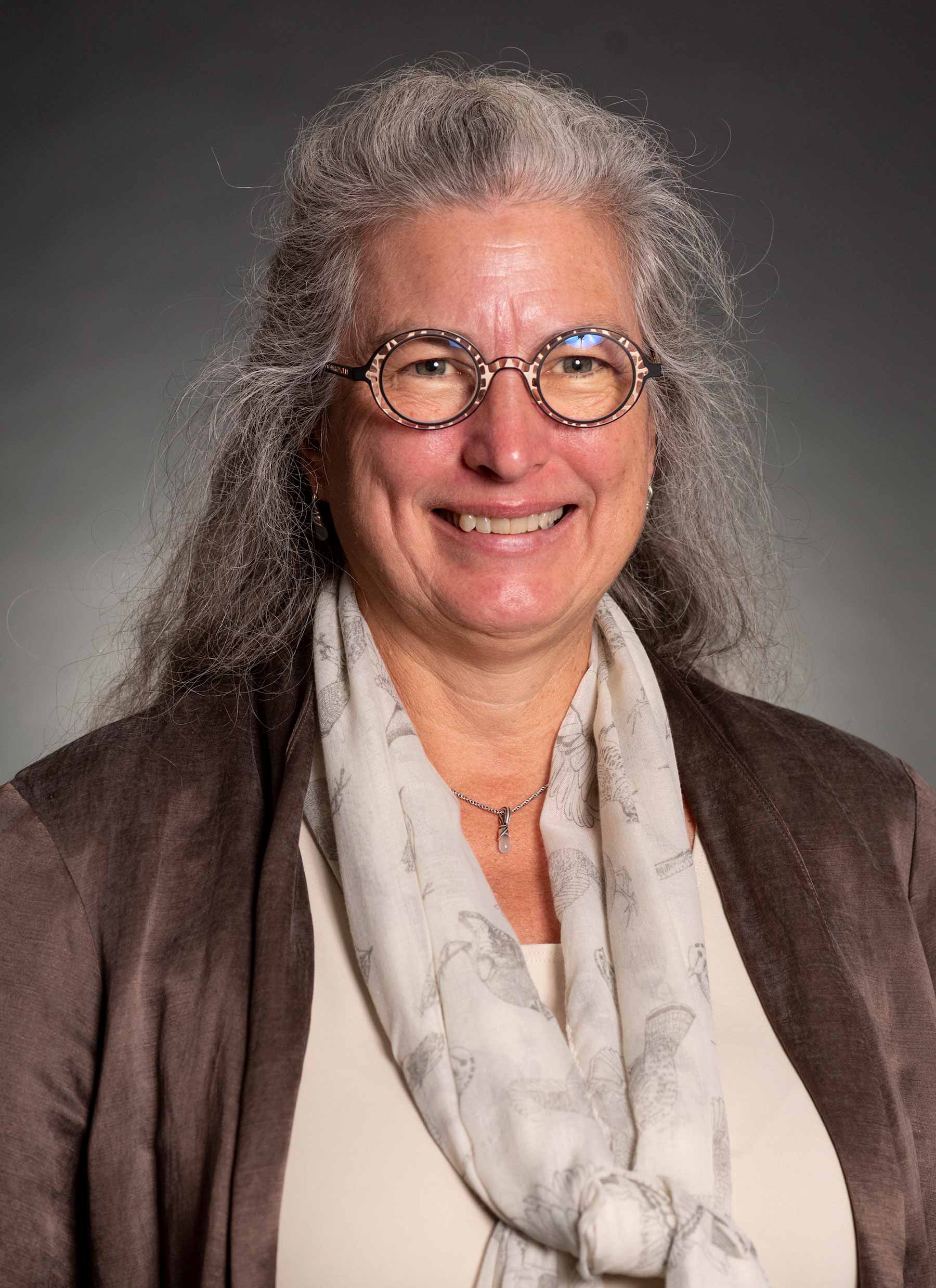
Marie Kerl earned her Doctor of Veterinary Medicine from Auburn University and master’s degrees in public health and business administration from the University of Missouri-Columbia (Mizzou). She completed specialty training at the Animal Medical Center in New York, and is a diplomate of the American College of Veterinary Internal Medicine and the American College of Veterinary Emergency and Critical Care. Her duties include ensuring the highest quality veterinary care through education and support of hospital teams by providing medical guidance within our hospitals. Additional professional activities include online teaching at the undergraduate and graduate levels, and veterinary disaster response. Dr. Kerl has received the Norden Distinguished Teaching Award from the students at Mizzou, and the Ira Zaslow Service Award from the Veterinary Emergency and Critical Care Society.

Dr. Keith Branson graduated from Kansas State University in 1985 and practiced in a mixed animal practice for four years. Dr. Branson then completed an anesthesia residency at the University of Illinois at Urbana-Champaign. He joined the faculty at the University of Missouri-Columbia College of Veterinary Medicine where he taught clinical anesthesiology until his retirement as an anesthesiology assistant teaching professor.
